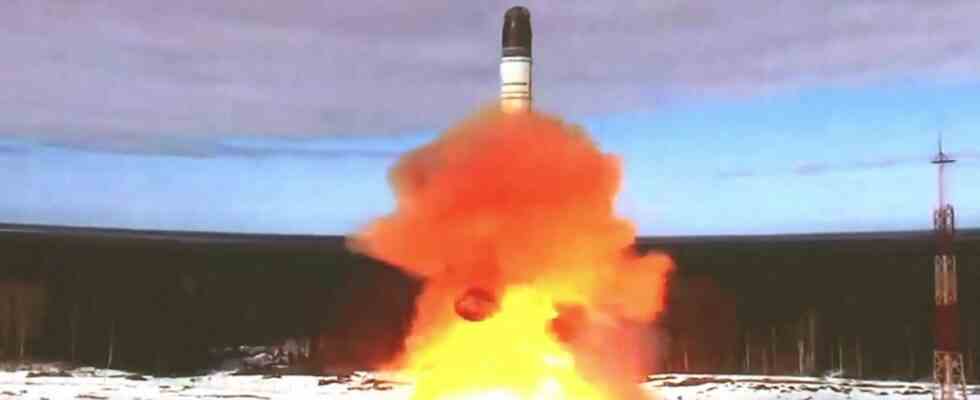The Stockholm peace research institute Sipri assumes that the nuclear arsenal in the world will soon increase again as a result of the current tensions. According to a report released on Monday, the US, Russia, Britain, France, China, India, Pakistan, Israel and North Korea possessed a total of 12,705 nuclear warheads as of the start of this year, down 375 from early 2021. The decline is largely due to disposal Warheads attributed by Russia and the US. The peace researchers currently estimate the number of operationally deployable nuclear warheads at 3,732. Of these, around 2,000 warheads are kept on high alert. Almost all are owned by Russia or the United States.
Despite a slight reduction in the total number of nuclear warheads, the peace researchers are counting in their annual report with the fact that this number is likely to increase again in the course of the coming decade. Sipri researcher Wilfred Wan spoke of an “alarming trend”.
The experts warned that there were clear signs that the continuous decline since the Cold War had ended. Without immediate and concrete disarmament steps by the nine nuclear weapon states, the global inventory of nuclear weapons could soon increase again for the first time since the Cold War. About 90 percent of all nuclear weapons on earth are held by the US and Russia. According to Sipri, extensive and costly programs are running in both countries to replace and modernize nuclear warheads, delivery systems and production facilities.
The same applies to the other nuclear weapon states, which include Great Britain, France, China, India, Pakistan, Israel and North Korea, according to Sipri. They have therefore all recently developed or stationed new weapon systems or at least announced this. Sipri researcher Wan said most nuclear powers “are sharpening their nuclear rhetoric and clarifying the role these weapons play within their military strategies.”
In January 2021, the UN Treaty Banning Nuclear Weapons came into force, which was signed by 86 states and ratified by 61 countries by May. However, nuclear powers such as the USA, Russia, China, France and Great Britain, which are also the five permanent members of the UN Security Council, reject the agreement. Critics have long warned that the United States, for example, is relying on so-called “mini-nukes” with lower explosive power, which can be used in a more targeted manner but are just as destructive.
The bilateral talks between Russia and the United States have stalled because of the Ukraine war, the peace researchers said. Russia even openly threatened the possible use of nuclear weapons. None of the other nuclear weapons states are conducting arms control negotiations either. “The risk of using nuclear weapons now appears higher than at any time since the height of the Cold War,” said institute director Dan Smith.
According to Sipri, the seven other nuclear powers have significantly smaller arsenals. But they are still in the process of modernizing or expanding them. According to Sipri, for example, China is expanding its arsenal – satellite images showed the construction of more than 300 new missile silos. Britain had announced in 2021 that it would increase the cap on its total stockpile of warheads. While the country criticized China and Russia for a lack of transparency, it announced that it would no longer disclose figures about its own holdings. France, meanwhile, launched a program to develop third-generation strategic nuclear-powered ballistic missile submarines in February 2021.

